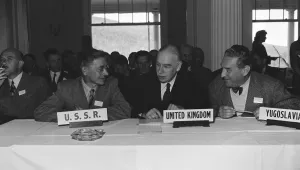International Security is America's leading peer-reviewed journal of security affairs.
Summary
Many experts consider nuclear terrorism the single greatest threat to U.S. security. The fear that a state might transfer nuclear materials to terrorists was a core justification for the invasion of Iraq in 2003 and, more recently, for a strike against Iran’s nuclear program. The logical basis for this concern is sound: if a state could orchestrate an anonymous nuclear terror attack, it could destroy an enemy yet avoid retaliation. But how likely is it that the perpetrators of nuclear terrorism could remain anonymous? Data culled from a decade of terrorist incidents reveal that attribution is very likely after high-casualty terror attacks. Attribution rates are even higher for attacks on the U.S. homeland or the territory of a major U.S. ally—97 percent for incidents in which ten or more people were killed. Moreover, tracing a terrorist group that used a nuclear weapon to its state sponsor would not be difficult, because few countries sponsor terror; few terror groups have multiple sponsors; and only one country that sponsors terrorism, Pakistan, has nuclear weapons or enough material to manufacture them. If leaders understand these facts, they will be as reluctant to give weapons to terrorists as they are to use them directly; both actions would invite devastating retaliation.
Lieber, Keir A. and Daryl Press. “Why States Won't Give Nuclear Weapons to Terrorists.” Summer 2013



